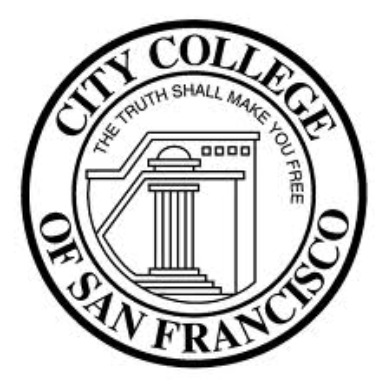 City College of San Francisco trustees voted Thursday to close a small childcare facility in Bernal Heights and reduce hours at three others in a move to close a major budget gap and save the school’s accreditation.
City College of San Francisco trustees voted Thursday to close a small childcare facility in Bernal Heights and reduce hours at three others in a move to close a major budget gap and save the school’s accreditation.
The board also voted to move faculty members out of administrative positions and step up efforts to collect student fees, college spokesman Larry Kamer said. The changes, approved unanimously by the board, could save a total of more than $2.5 million a year, officials estimate.
“The pressure is on to direct what resources we have to the classroom,” Kamer said.
The moves to reorganize and cut costs are being made in response to a threat to City College’s accreditation that could potentially force the community college to shut down.
The Accrediting Commission for Community and Junior Colleges in July placed City College on “show cause” status, citing problems with the school’s governing structure and facilities, among other issues.
The school submitted a required action plan responding to the problems identified by the commission on Oct. 12, outlining changes being made including the closure of three instructional sites. A “show cause” report demonstrating that the school has made significant progress toward resolving those problems is due by March 15.
The decision to close the childcare centers prompted debate among trustees about the role of City College in providing services for students, Kamer said. But ultimately, it “represented a real resource drain away from classrooms and student programs.”
City College’s four childcare centers serve students and faculty members and provide work experience for child development majors. However the programs, which receive state funding, required around $900,000 in subsidies in the 2011-2012 fiscal year and has a $700,000 subsidy budgeted for the current fiscal year.
The college closed a facility in Hunter’s Point last year, saving around $200,000. Closing the Bernal Heights facility will save around $84,000 annually, and closing the remaining three facilities in the summer and whenever the college is not in regular session will save an additional $358,000, college officials said.
The plan to reassign faculty members currently acting as administrative department heads back to teaching roles is also intended to move resources back to the classroom, Kamer said. Departments will instead be run by professional administrative heads, or deans, at an estimated savings of more than $2 million annually.
The college could save as much as $400,000 a year through changes to its policies on the collection of student fees.
College officials had over the years not required up front payment of fees and only required them when students attempted to reenroll the following semester, Kamer said. This practice has lost the college around $400,000 in uncollected fees annually, and around $8.5 million over the years.
The college will now require up front payment and make more aggressive efforts to collect on unpaid debts, Kamer said.
Also approved Thursday was the hiring of a special trustee, Bob Agrella, who will have veto power over all accreditation-related decisions over the next eight months, at an estimated cost of around $160,000.
In addition, the college issued a request for a real estate developer to help find tenants for a property on Gough Street.
City College’s financial stability is also dependent on whether state and local tax measures to support the school are passed.
If Proposition 30 on the state level is not passed, City College would face cuts of more than $11.5 million, while local Proposition A would provide the school with $14 million annually for eight years, according to the report.
Want more news, sent to your inbox every day? Then how about subscribing to our email newsletter? Here’s why we think you should. Come on, give it a try.









